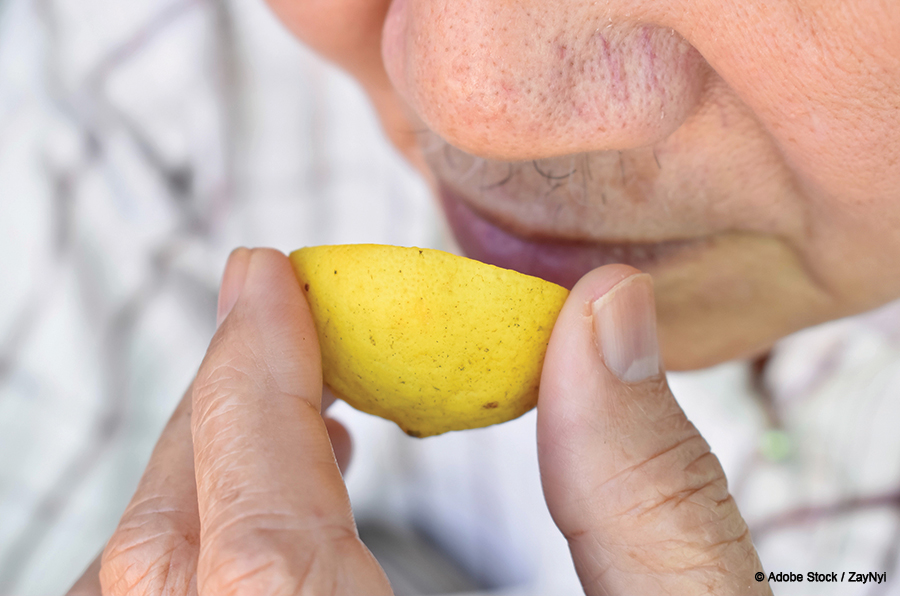 Major depressive disorder (MDD) is common and can severely diminish quality of life for those who suffer from it. This can include a difficulty in recalling specific autobiographical memories—those that happened at a specific place or time, as opposed to categorical memories, which are memories that encompass several different but related events.
Major depressive disorder (MDD) is common and can severely diminish quality of life for those who suffer from it. This can include a difficulty in recalling specific autobiographical memories—those that happened at a specific place or time, as opposed to categorical memories, which are memories that encompass several different but related events.
Explore This Issue
March 2024A new study out of the University of Pittsburgh School of Medicine in Pennsylvania and published in JAMA Network Open (doi:10.1001/jamanetworkopen.2023.55958) examined the effectiveness of the use of spoken word cues and distinct odors in helping patients with MDD recover specific memories, and how they compared to each other.
The cross-sectional study consisted of 32 adults aged 18 to 55 years with a primary diagnosis of MDD. Exclusion criteria included a current diagnosis or a history of psychosis; a bipolar I or bipolar II diagnosis; a history of major medical or neurological disorders; a history of drug or alcohol abuse within the previous year or lifetime alcohol or drug dependence (except nicotine); and the presence of current allergies, cold, COVID-19, or other medical issues altering the sense of smell. Participants also needed to be stable on any current antidepressant medication being taken. Data were collected between September 2021 and November 2022 and analyzed from January to June 2023.
Participants were presented with a series of 24 cues (12 presented as odors and 12 presented as words in separate blocks) and were asked to recall a specific memory from their life in response to each cue. Prior to the task, participants were instructed on the task and were presented with an example of a specific memory vs. a categorical memory. The response time (RT) to recall a memory for each cue was recorded by the experimenter with a stopwatch; failing to recall a memory in 30 seconds or repeating a memory from another cue were recorded as “no memory.” The primary outcome measure for the study was the percentage of specific memories recalled in response to odor-cued memories vs. word-cued memories; additional outcomes included arousal, vividness, repetition, and recall response time.
After analyzing the data, researchers found that participants recalled more specific memories for odor cues than for word cues (mean [SD], 68.4%[20.4%] vs. 52.1% [23.3%]; Cohen d, 0.78; P < .001). Additionally, odor-cued memory recall was rated by participants as more arousing (mean [SD], 3.0 [0.8] vs 2.6 [0.7]; Cohen d, 1.28; P < .001) and vivid (mean [SD], 3.3 [0.7] vs 3.0 [0.7]; Cohen d, 0.67; P < .001), and the stopwatch showed that it was slower than word-cued recall (mean [SD], 14.5 [3.6] vs 8.9 [3.4] seconds; Cohen d, 1.18; P < .001).
When compared with the population mean for word cues in healthy controls from other studies, participants in this study recalled fewer specific memories in response to words (Cohen d, 1.18; P < .001), and researchers didn’t find an association between memory performance and depression severity. The percentage of specific memories recalled in response to odor cues also didn’t differ from the healthy control population mean (Cohen d, 0.26; P = .15).
The study authors say they hope that their initial study will spur larger studies in more diverse samples that include healthy control participants to further investigate whether odor cues could be a potential new method for increasing specific recall in patients with MDD.